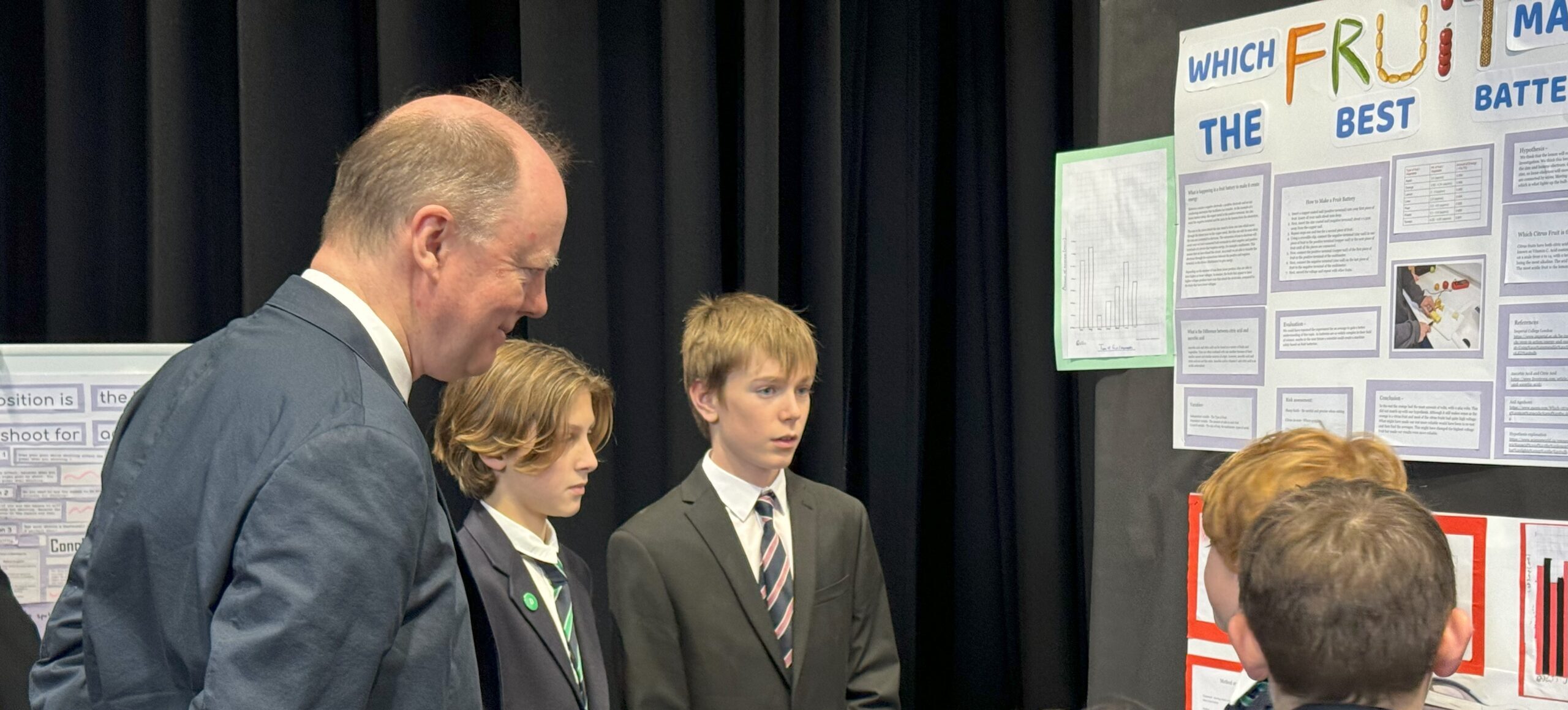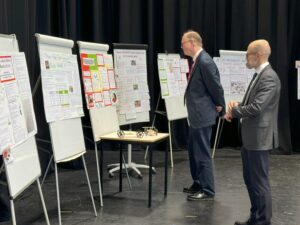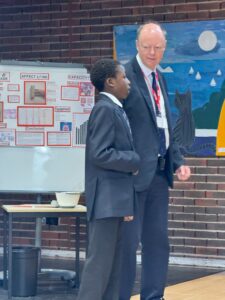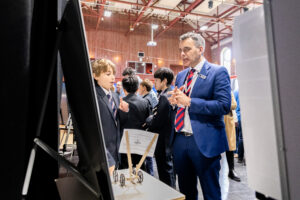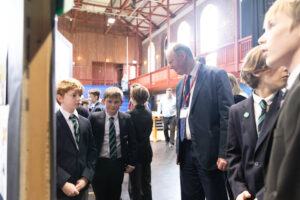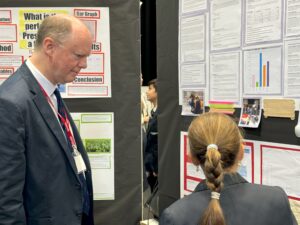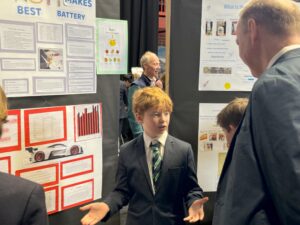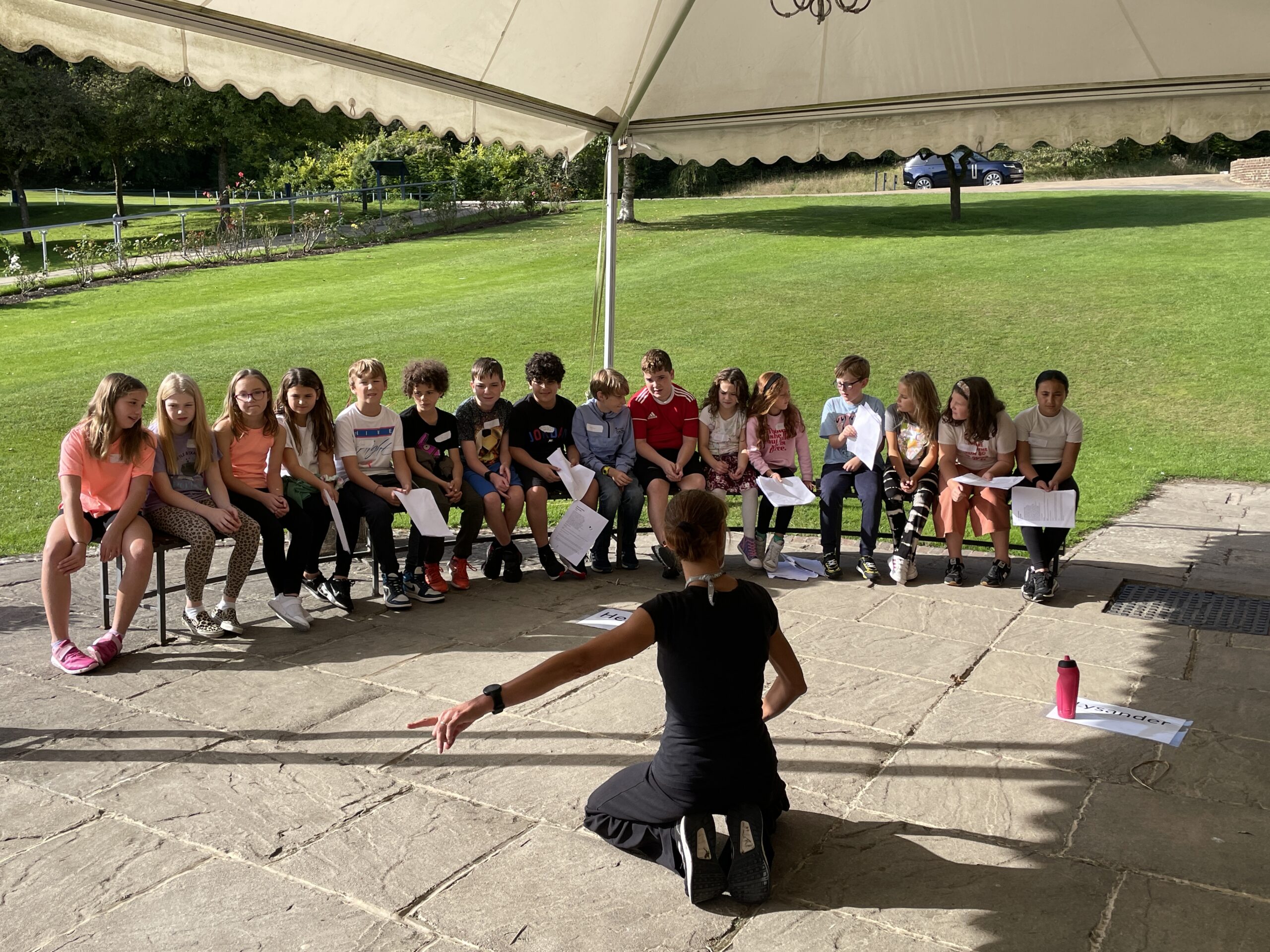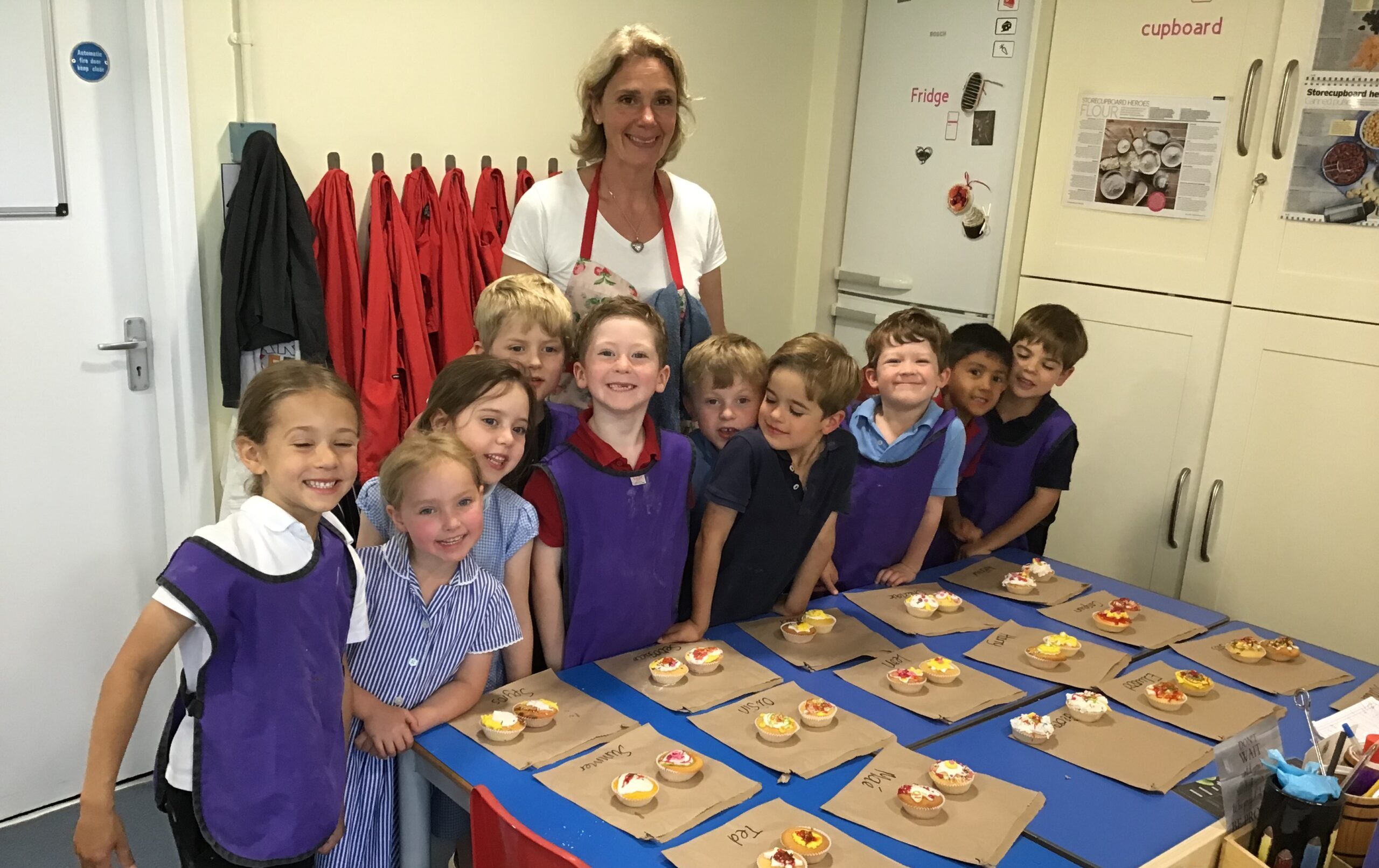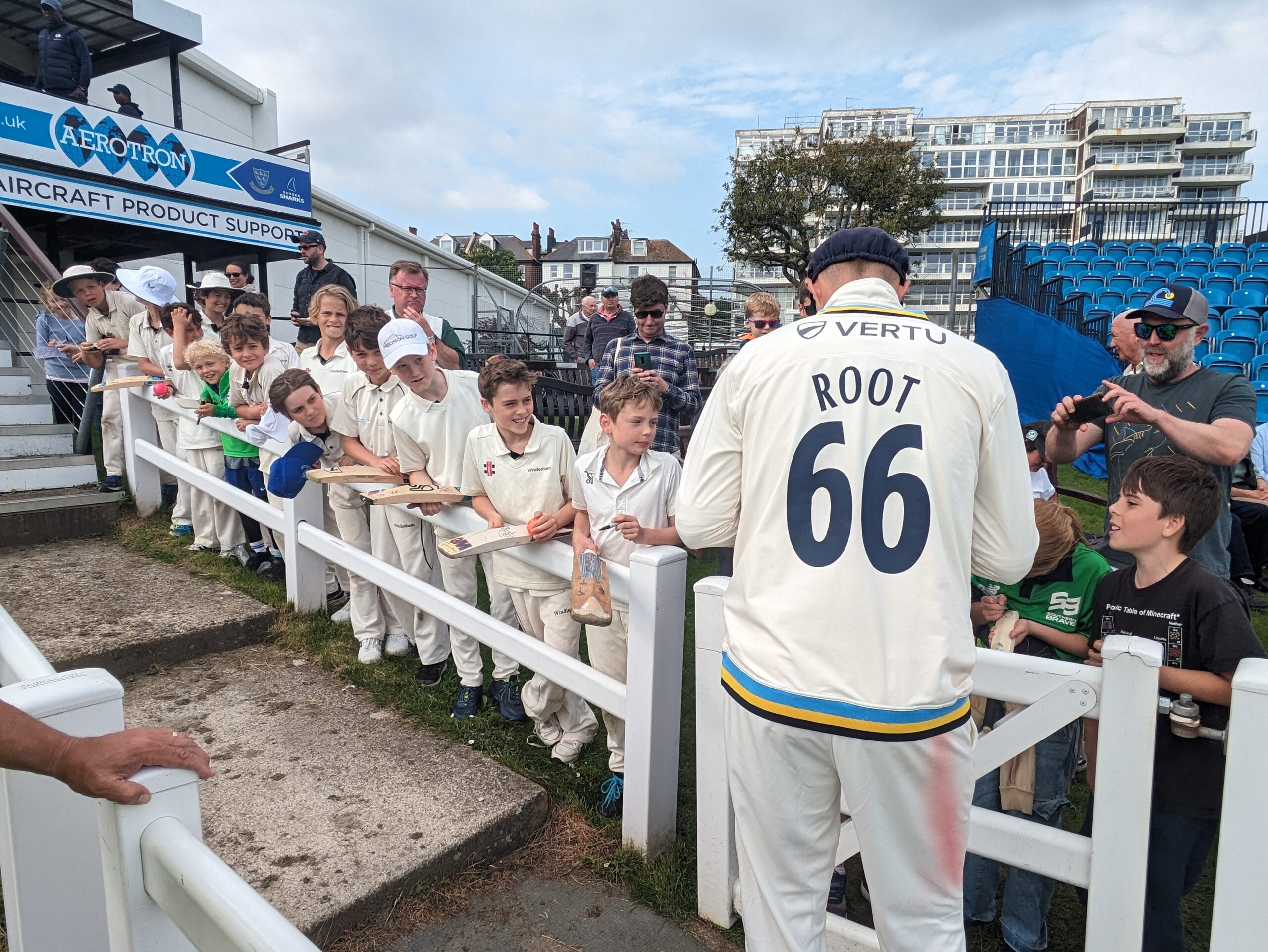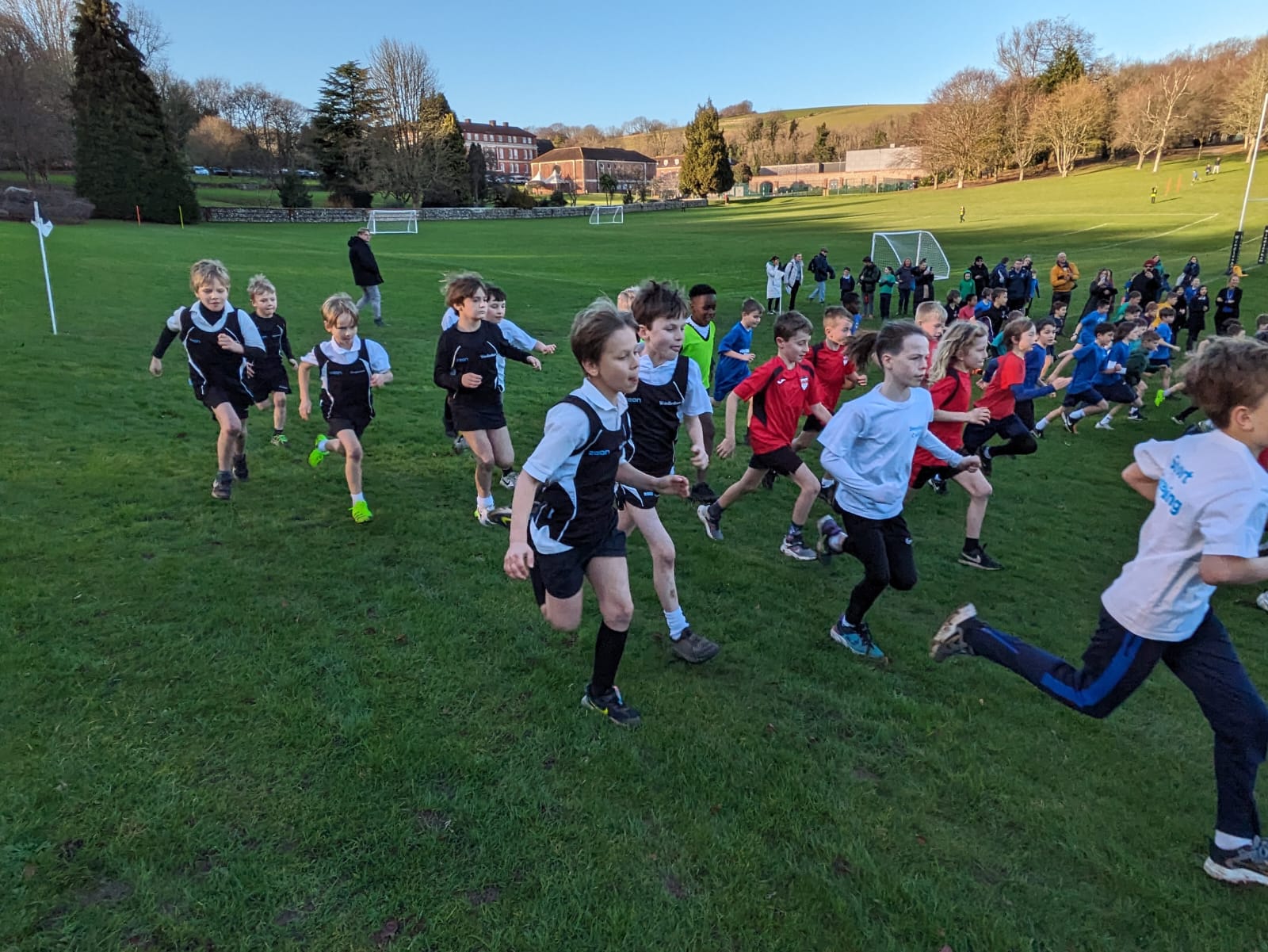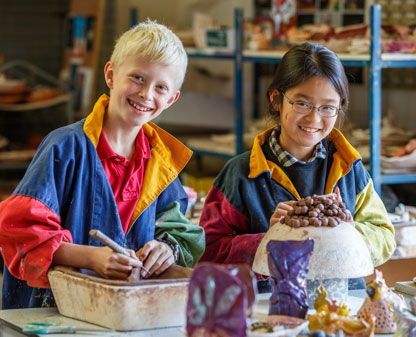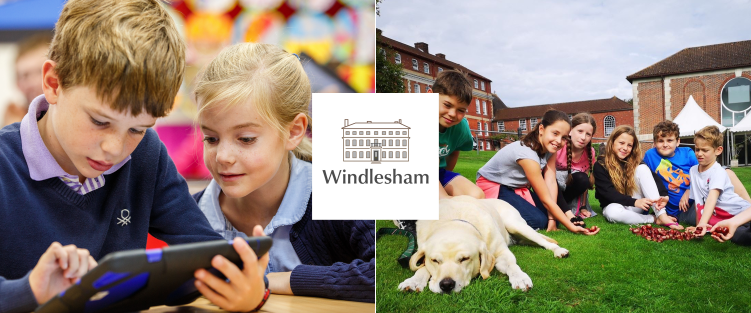Windlesham House was delighted to welcome the UK Government’s Chief Medical Adviser, Professor Chris Whitty, along with Lancing College, to a special science discovery showcase designed to celebrate the ingenuity and scientific spirit of our Year 7 pupils. Part of the Windlesham Diploma & Futures programme, this year’s cohort are the first to begin the school’s unique two-year course. From culinary conundrums to entomological inquiries, the budding young scientists delved into an array of insightful experiments, showcasing their natural curiosity, and amazing analytical and investigative skills.
Professor Whitty, who is a former pupil of Windlesham House, discussed the scientific experiments with pupils, which included Fizzy Fountains, an experiment which explored the reaction between Mentos sweets when mixed with carbonated drinks, to a study of animal behaviour which looked at the light preferences of mealworms, and the baking science behind achieving fluffy cupcakes.
“I remember my own school project at Windlesham House: What temperature do you need to keep milk at before it goes off?” recalled Professor Whitty, “I still have the project and it was probably my proudest moment at school. I really learned a lot from my science teachers when I was here and I’ve taken that with me,” he said.
These science projects form part of the two-year diploma course which sees the school’s Year 7 and Year 8 pupils complete a comprehensive ‘learning for life’ programme in addition to their core curriculum subjects to help them flourish at senior school and beyond. Phillippa Faulkner, Assistant Head Academic at Lancing College, who supported the showcase, highlighted the value of these experiences in helping pupils to think more deeply, question and learn from their experiences.
Other experiments included the cognitive phenomenon, The Stroop Effect, which tested the impact of conflicting information on reaction time and accuracy using colourful and captivating experiments. The pupils also explored the aerodynamics of sail shapes and the principles of lift, drag and propulsion, and they even looked at the efficacy of face cleansers in removing bacteria.
“You don’t have to learn science to be interested in it,” continued Professor Whitty. “It can be fun and interesting. Learning a basic level of science is really important too, as it’s woven into our everyday lives. Remember, all experiments go wrong, most of mine did! Part of failing is that you learn from the process; that’s a key part of science”.
The projects explored gave a glimpse of the creativity and curiosity thriving amongst the pupils at Windlesham. Ben Evans, Headmaster at the School added, “It was wonderful to welcome Professor Whitty back into our school community and to listen to his own childhood experiences of science lessons. Fun events like these really do widen our pupils’ skill sets, inspiring them while giving them greater exposure to the real world. The more space they have to explore, question, innovate and take risks, the more resilient they will become.”

